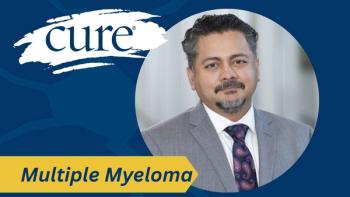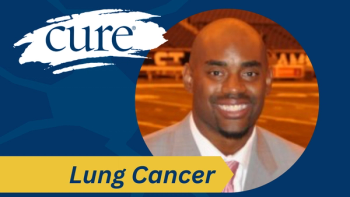
Tips for Navigating Health Care After a Cancer Diagnosis
An ovarian cancer survivor shares what she wishes she had known then with those who are newly diagnosed.
As I head into my fourth year of living with cancer, I often see social media posts from new patients with cancer and I feel for them. Not only for what cancer is doing to their bodies, but because of the stress I know they are feeling as they try to absorb the diagnosis and deal with insurance, bills and health care providers in one fell swoop.
I remember well the numb, overwhelmed state I experienced in those first days. I didn’t know enough to formulate intelligent questions, so I stumbled through a myriad of obstacles like the proverbial bull in a china closet. I want to share what I wish I had known then for new members in a club that none of us ever wanted to join.
Ask a nurse navigator for assistance. I had never heard that term prior to my diagnosis, but nurse navigators can help patients learn about resources available to them and which ones they may need. Would someone benefit from a psychologist or a social worker? They can offer advice.
Patients should be familiar with their insurance coverage. They should be familiar with the out-of-pocket cap and the drug plan formulary, which is a list of the drugs the company covers. It gives specific instructions on drugs that are handled differently.
If a person is on Medicare, there is no out-of-pocket cap for drugs. Because of a federal law, as it stands today, patients are not eligible for copay assistance from drug manufacturers. Therefore, they should discuss options with their doctor to determine if they can afford them.
Patients should also be aware that they can submit a request for an exception for drugs not covered by Medicare. I’ve done it twice and each time the drug has been approved after going through a prior authorization process.
This leads me to the term prior authorization. It’s crucial to know what this means and how the insurance company and provider handle the bureaucratic tango. It’s a process where the doctor must provide “additional information” before the insurance company will consider filling a prescription. My oncologist is part of a huge practice with many doctors. One person handles all these prior authorizations. I learned the hard way that I had to stay on top of this process, or I would wait weeks and the prescription would still be “processing.”
I learned to call the insurance company to find out the status of a prescription. At the health care provider’s office, I had to leave a message for the prior authorization person. It was never possible to speak with him. Sometimes I would get a call back, but mostly not. In one instance, the insurance company’s customer service representative called the health care provider with me on a conference call. Because she was calling from an insurance company, the operator put the call through and action was taken. Knowing this can cut days, even weeks, from the approval process. Otherwise you’re caught between two parties that often are not communicating.
Treatment in the infusion room, however counterintuitive it may seem, may be less expensive than those available to take at home. The difference is in whether Medicare sees it as a drug or a medical expense. My injections to treat neutropenia would be more conveniently administered at home, but the cost would be $900 a shot. If a nurse administers the injection in the infusion room, it’s considered medical and my out-of-pocket cap applies.
Since there will be an enormous amount of time spent in waiting rooms and dealing with staff, patients shouldn’t feel that they have to accept the status quo. We are customers as well as patients. If something is bothersome, speak up in a courteous way.
I once told a medical assistant that it was too cold in the exam room to undress for an exam. The next time I went, there was a portable heater in the room. It happens!
Writing a letter may also be effective. I did this with my prior authorization guy and received a call from one of the managers who said the letter would be used as a “teaching moment.”
Although these irritants may seem small compared with the disease, these stressors can often balloon into something more. Remove them and the road seems a little less bumpy.
The more a person knows about their disease, the resources available to them and their insurance coverage, the easier it will be to make good decisions. Nothing could be more critical in this cancer journey.




